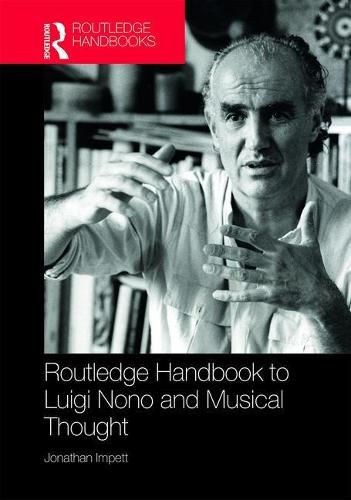Readings Newsletter
Become a Readings Member to make your shopping experience even easier.
Sign in or sign up for free!
You’re not far away from qualifying for FREE standard shipping within Australia
You’ve qualified for FREE standard shipping within Australia
The cart is loading…






Of the composers of the post-war new music, it is Luigi Nono (1924-1990) who has found most resonance with contemporary musicians - with composers, but also sound artists, improvisers and those exploring the implications of technology. At the same time, it is the music of Nono that is most explicitly grounded in previous music and music theory, whether of the Italian cinquecento or Schoenberg. Deep and explicit political commitment is balanced by a passionate humanism; both are embodied in his music as it responds to individual, cultural and political realities. The idea of resistance runs through his work in every respect - a constant challenge to listener, society and musicologist alike. Nono often referred to ‘musical thought’, and Jonathan Impett seeks to unfold his musical thought in its personal, theoretical and historical dimensions as it develops from early serial masterpieces of the 1950s such as Il canto sospeso, through the political, electronic and dramatic works of the 1960s and 70s to the ‘tragedy of listening’ Prometeo and the late music of the 1980s exploring improvisation and new technology. This survey is thus a story of the evolution of compositional practice, of the role of music and of the very nature of the work as they are transformed through the second half of the twentieth century.
$9.00 standard shipping within Australia
FREE standard shipping within Australia for orders over $100.00
Express & International shipping calculated at checkout
Of the composers of the post-war new music, it is Luigi Nono (1924-1990) who has found most resonance with contemporary musicians - with composers, but also sound artists, improvisers and those exploring the implications of technology. At the same time, it is the music of Nono that is most explicitly grounded in previous music and music theory, whether of the Italian cinquecento or Schoenberg. Deep and explicit political commitment is balanced by a passionate humanism; both are embodied in his music as it responds to individual, cultural and political realities. The idea of resistance runs through his work in every respect - a constant challenge to listener, society and musicologist alike. Nono often referred to ‘musical thought’, and Jonathan Impett seeks to unfold his musical thought in its personal, theoretical and historical dimensions as it develops from early serial masterpieces of the 1950s such as Il canto sospeso, through the political, electronic and dramatic works of the 1960s and 70s to the ‘tragedy of listening’ Prometeo and the late music of the 1980s exploring improvisation and new technology. This survey is thus a story of the evolution of compositional practice, of the role of music and of the very nature of the work as they are transformed through the second half of the twentieth century.